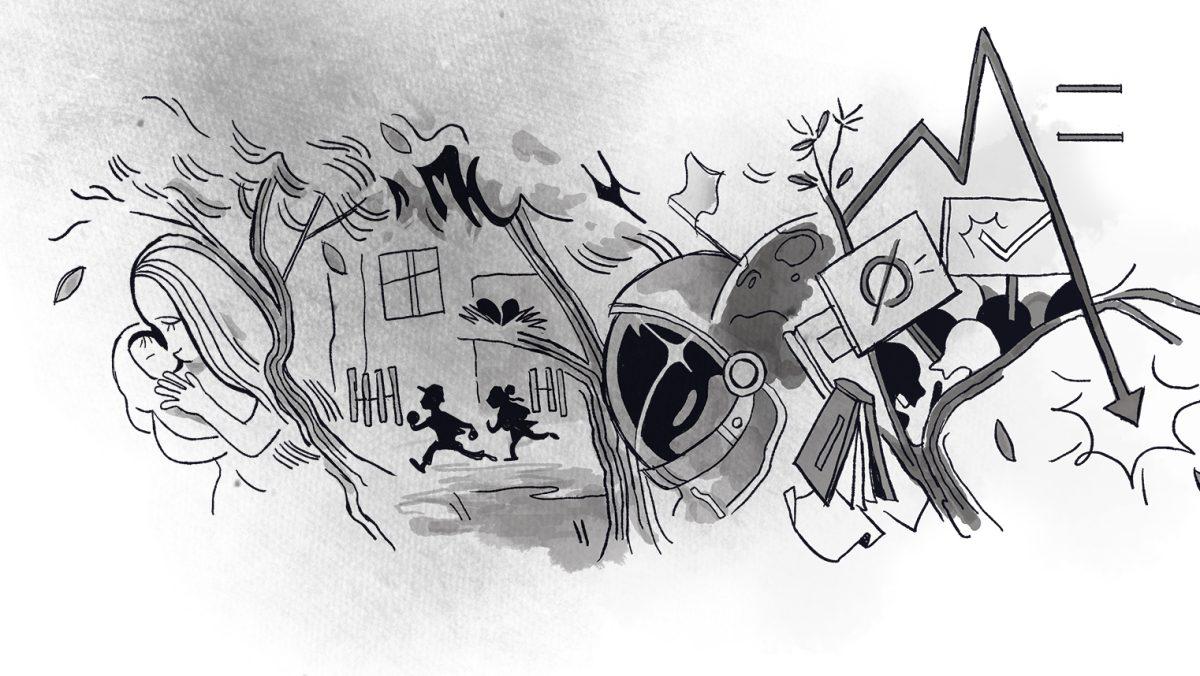The demanding whirlwind of everyday life in society exponentially grows by the day as handmade sourdough bread loaves, picturesque open fields and an influx of interest in buying handmade crafts from the websites of self-promoted, small-scale artists, flood our internet feeds.
Aspects like these have been seeping into mainstream internet culture for some time, and arguably, some would say they’ve always been a part of the human condition.
Fueled by the newest advents of technology, tumultuous political climates and a seemingly endless pandemic, modern denizens are increasingly seeking the escapism provided by the internet phenomenon known as cottagecore.
But What Is Cottagecore?
Cottagecore is a modern term created to describe an online community that began to embrace the values of rustic life.
Depending on who you talk to, the elements of cottagecore can range from grainy Snapchat filters, to homemade candles being sold by a budding craftsman and even to video games such as “Animal Crossing.”
Camila Silvera, a fourth year Biology major at RIT, provided a description for the concept of cottagecore.
“Cottagecore is an aesthetic that values nature and a simple life away from the pressures of society,” she said.
“Cottagecore is an aesthetic that values nature and a simple life away from the pressures of society.”
Where the term exactly came from is not as clear as what it represents.
Some people believe that the term originated from a series of TIkTok videos that showcased some prominent aspects of cottagecore, while others believe it originated from a Tumblr feed with similar intentions.
No matter which online platform it originated from, what’s clear is that cottagecore entered the mainstream through social media posts originating from the LGBTQ community that featured the desirable simplicity of cottagecore aesthetics.
“Cottagecore specifically does have a lot of appeal for people who are more sapphic, women who are into women”, Silvera said.
Although it was popularized by one community, cottagecore appeals to everyone regardless of race, sex or gender. It appeals to so many people simply because cottagecore is driven by something we have all historically needed, and that is the need to escape.
The Escapism Fueling Cottagecore
One does not have to dig deep into the internet to see how mainstream cottagecore activities and aesthetics have become.
Could it be that such widespread interest in these activities as of late is a direct result of the pandemic and the prolonged quarantines many are forced to face?
Possibly, but more likely the pandemic has simply served as a catalyst for the escapism that nearly all of us seek, and cottagecore has become the perfect vehicle to deliver it in our current times.
Abigail Buchman, a fourth year Game Design and Development major at RIT, explained the conditions that gave rise to cottagecore’s popularity.
“Now that it’s like ‘we’re in a pandemic and it feels like everything about society is collapsing right now,’ it [cottagecore] even more idealizes escape fantasy,” Buchman said.
“Now that ‘we’re in a pandemic and it feels like everything about society is collapsing right now’ it [cottagecore] even more idealizes escape fantasy.”
Cottagecore may be new as an internet phenomenon, but the charming rustic traits akin to cottagecore have always been an element of humanity.
In fact, the Hameau de la Reine in Versailles, France served as a mock farm village for Marie Antoinette to go and pretend she was a regular peasant farmer, escaping her obligations as queen of France.
An escape allows us to take our minds away from the crazy world we need to enter daily in order to survive, even if only for a moment.
So we find escapes by taking those vacations, going out on a Friday nights and crafting things with our hands.
But much of that came to a grinding halt once the pandemic struck.
As a result, we became confined to our personal spaces, in search of another way to escape.
Cottagecore was perfectly poised as an internet trend that could satisfy the craving for escape from a chaotic world. It was accessible enough so many could partake in something simply pleasing to do with its rustic qualities.
While cottagecore give us that escape, it simultaneously connects us in new ways through technology.
“A key part of it [cottagecore] is wanting to escape there with someone … finding community despite isolation,” Buchman said.
Thus, as the pandemic rages on we find ourselves baking bread and tending to digital farm animals in video games.
While cottagecore has become something many have begun to take part in to find their escape, it raises some other concerns among others about the message it could be sending.
Controversy in Cottagecore Culture
Cottagecore has drawn some criticism, primarily because it does evoke a time where political beliefs and cultural norms were backwards from the ones we hold today.
“There’s a lot of conversations about romanticizing colonialism and owning land and all that stuff,” Buchman said.
Many of the popular aspects of cottagecore can be traced to the colonial time period where peasantry, serfdom, misogyny and even slavery were normal aspects of everyday life.
Furthermore, some have even speculated that cottagecore could be weaponized as a platform to once again popularize the idea of gender roles, racism and fascist beliefs.
“I’ve also seen people say that cottagecore becoming more popular is going to lead to fascists abusing the ideology to try and appeal to people … but I don’t know if that’s necessarily going to be as big of an issue as some people make it out to be,” Buchman said.
However you see cottagecore, it has become a mainstream phenomenon because it has allowed people to find simplicity and escapism in trying times.
Cottagecore has done more than get people baking sourdough bread and posing in lush meadows — it has provided an outlet for comfort in a uncertain world.
“If you’re going to be stuck at home, you might as well imagine you’re somewhere else and doing different things in a different place,” Silvera said.







